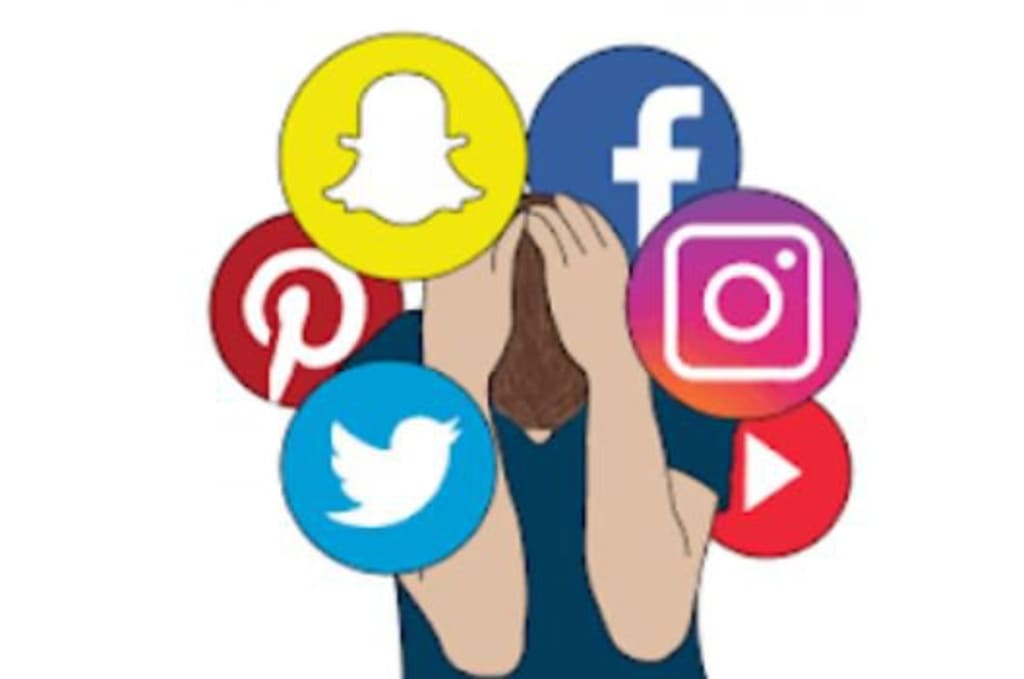The Negative Influence of Social Media: Unveiling the Detrimental Effects
Navigating the Dark Side: Unveiling the Detrimental Effects of Social Media

Social media platforms have revolutionized the way we communicate, share information, and interact with the world. However, despite their numerous benefits, it is imperative to recognize the negative influence that social media can have on individuals and society as a whole. This article aims to shed light on the detrimental effects of social media, exploring its impact on mental health, social relationships, self-esteem, and the dissemination of misinformation.
1. Mental Health Concerns:
Social media has been linked to various mental health issues. The constant exposure to carefully curated, idealized versions of others' lives can lead to feelings of inadequacy and low self-esteem. The relentless pursuit of social validation, as measured by likes and comments, can significantly impact an individual's self-worth and mental well-being. Moreover, the fear of missing out (FOMO) induced by social media can contribute to anxiety and depression, as users are bombarded with images and updates of events they were not a part of.
2. Deterioration of Social Relationships:
Paradoxically, while social media aims to connect people, it can often result in the deterioration of real-world relationships. The excessive time spent on social media can lead to decreased face-to-face interactions, weakening interpersonal skills and reducing empathy. Additionally, the prevalence of cyberbullying and online harassment can cause significant harm, isolating individuals and straining relationships. The allure of online connections may overshadow the importance of nurturing genuine, meaningful connections in the physical world.
3. Negative Impact on Self-Esteem:
Social media platforms have become breeding grounds for comparison and unrealistic beauty standards. Constant exposure to carefully edited images and highlight reels can foster feelings of inadequacy and body dissatisfaction. The pressure to conform to societal beauty ideals can lead to a negative body image and, in extreme cases, contribute to the development of eating disorders. The cultivation of a distorted perception of reality through social media can be detrimental to individuals' self-esteem and overall well-being.
4. Dissemination of Misinformation:
The rapid spread of misinformation on social media poses a significant threat to society. False information, rumors, and conspiracy theories can easily go viral, influencing public opinion and exacerbating societal divisions. The lack of fact-checking and the abundance of echo chambers further perpetuate misinformation, leading to misguided beliefs and actions. The consequences of this misinformation can range from undermining public health efforts to causing social unrest and political polarization.
5. Addiction and Time Mismanagement:
Social media is designed to be addictive, leveraging psychological triggers to keep users engaged. The constant need to check notifications, respond to messages, and stay up-to-date can lead to a loss of productivity and time mismanagement. Excessive use of social media has been associated with decreased academic performance, reduced work efficiency, and compromised real-life experiences. The addictive nature of social media can contribute to a cycle of dependency, hindering personal growth and hindering mental well-being.
Conclusion:
While social media platforms undoubtedly offer numerous advantages, it is crucial to acknowledge and address the negative influence they can exert. The negative impact on mental health, social relationships, self-esteem, the dissemination of misinformation, and time mismanagement are significant concerns that require attention. As individuals, we must strive for a balanced and mindful approach to social media usage, emphasizing real-world connections, critical thinking, and responsible information sharing. Additionally, policymakers and social media companies should work collaboratively to implement measures that promote digital well-being, protect user privacy, and mitigate the negative consequences associated with social media. By understanding and mitigating the negative influences, we can harness the potential of social media for positive change and foster a healthier digital ecosystem.By recognizing and addressing the negative impact of social media, we can cultivate a more positive and balanced online environment.
About the Creator
The Pen Crafts
With every word i write, I aim to inform, inspire and ignite conversations. Join me in exploring the intracies of the world we inhabit and the stories that shape our lives.





Comments
There are no comments for this story
Be the first to respond and start the conversation.